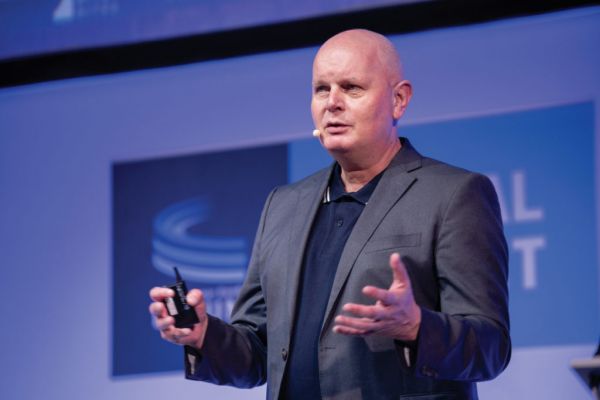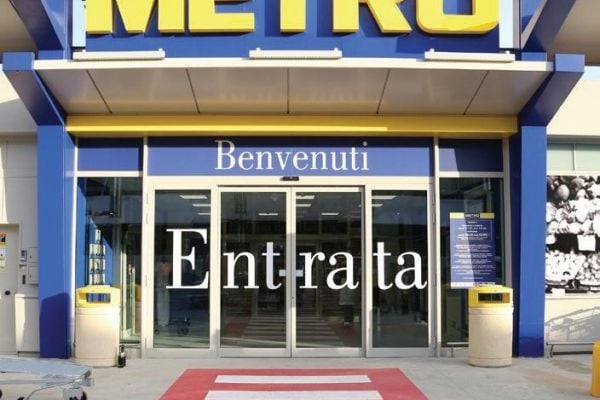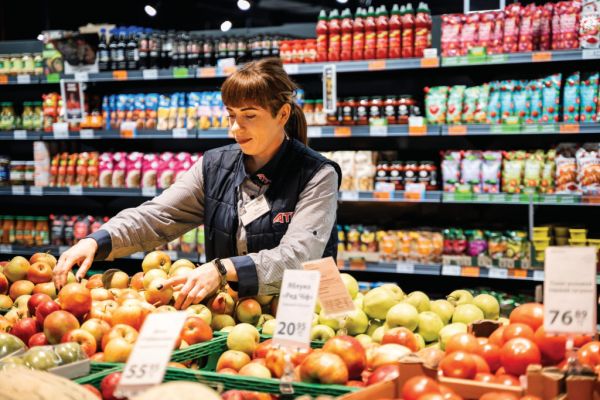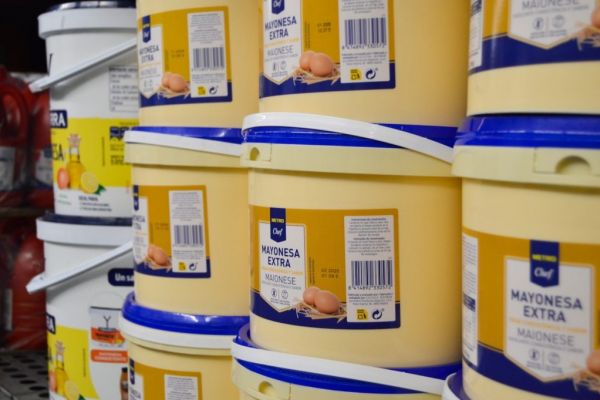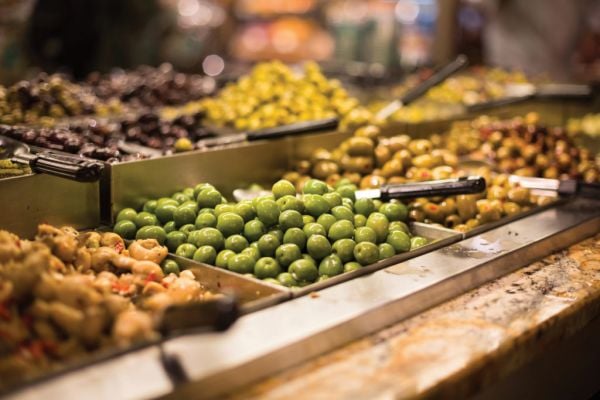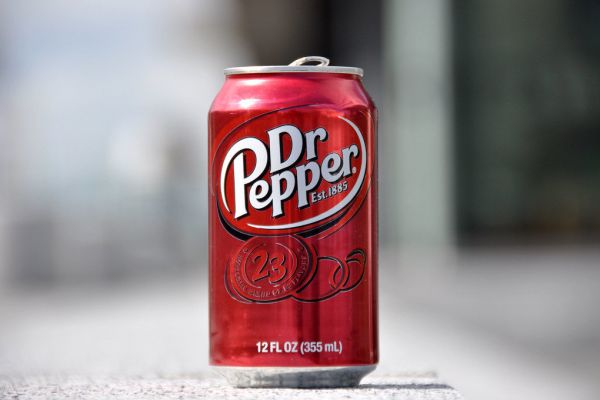ESM's Stephen Wynne-Jones catches up with former Metro chief executive Olaf Koch, who is now funding the future of food with his Zintinus investment vehicle. This article first appeared in ESM's September/October 2023 edition.
Taking its name from the Latin word for sustainable, Zintinus was founded in 2021, with the aim of fostering an emerging generation of food start-ups that have sustainability and social governance at their core.
While the global food-and-beverage industry – which is worth a whopping $8 trillion – has had to navigate choppy waters recently, the momentum around sustainability, health, functionality and tackling food waste has continued to accelerate, and it is only likely to account for an increasingly larger piece of the pie as the decade progresses.
It’s this segment on which Zintinus aims to focus – food and beverage products and/or solutions that present a unique opportunity for value creation in a changing world.
Mighty Metro
Among the partners heading up Zintinus is Olaf Koch, the former chief executive of cash-and-carry giant Metro and a firm believer in the possibility of positive change in the food-and-beverage sector.
During his nine-year tenure as Metro CEO, Koch undertook a root-and-branch restructuring of the business, offloading businesses such as Galeria Kaufhof and the Real hypermarket chain and consolidating the focus around its wholesale origins.
His time at Metro also coincided with the development and launch of NX-Food, an accelerator for start-ups in the food business – elements of which have inspired his current role with Zintinus.
“At Metro, I had a fantastic opportunity to see the diversity of food, and all the challenges we are facing when it comes to sustainability, health, nutrition and food security for the future,” Koch tells ESM.
“Product innovation in the food space is traditionally very difficult, leading to a situation where most innovations do not succeed, but this is changing, as people start to ask questions such as, ‘What does this do to the environment?’ or ‘What does this do to me?’
“There has been a rise of insurgent brands, which, in some cases, have outperformed incumbent brands by as much as five to one. Not all of them have succeeded, but many have, and it shows there is a willingness on the part of customers to shift preference towards products that are sustainable and good for their health.”
Selecting Start-Ups
It’s not the first time that Koch has worked with the start-up sector – he himself founded a tech start-up, IT Networks GmbH, in the mid-nineties, before commencing work for Daimler (developing the car firm’s corporate e-business strategy) in 1998.
Prior to joining Metro in 2009, he spent two years at investment firm Permira. In developing Zintinus, Koch has brought on board former colleagues and companions with proven backgrounds in supporting start-ups – other partners include former NX-Food head Fabio Ziemssen, David Brown, the founder of US start-up accelerator Techstars, and investment expert Christian Neuss, a former Permira colleague.
Zintinus plans to typically invest in Series A, A+ and B rounds, to support start-ups in scaling successfully. Since launching in April 2022, six start-ups have already received funding (free-from snack specialist Partake is rumoured to be a seventh), with Koch suggesting that, in time, the portfolio could expand to three or four times that number.
“As a fund, we have chosen a strategy that requires a certain level of progress to be there – we are not a seed or pre-seed early-stage investor,” he explains. “We need to see a certain validity in the market, and with consumers, that typically means around $2 million or $3 million in annualised sales.
“That enables us to understand the upstream and downstream elements – are the channels a business has chosen adequate to drive growth, and how can we help it to make the right choices when it comes to a crossroads? So, in that sense, we want to be a partner in investing, but hopefully the money we invest is only part of the contribution that we can make.”
Zintinus is positioning itself around four key verticals – alternative proteins, clean nutrition, functional food, and food waste – with the investment approach centring on companies with the potential to drive significant change in these four target fields.
“It’s one thing to get your concept from the kitchen to the plate, or from the lab to the plate,” Koch adds, “but it’s a totally different thing to get it commercialised and industrialised. Many mistakes that companies encounter are 100% avoidable if you are able to have discussions with people that have encountered them in the past.”
Read More: 7 Ways Food Technology Is Transforming The Global Food Industry
About The Portfolio
What’s noticeable about the portfolio of companies with which Zintinus works (see panel) is that not all of them have a defined consumer ‘product’. While the likes of Mighty, Kraftling, Gem and Blue Farm are product based, It’s Fresh is a tool to unlock extended freshness in fruit and vegetables, while Lykon is a nutrition analytics service.
“Initially, we started with the view that the consumer-facing product is what we should be looking for, and we will continue to invest in that space,” Koch explains,“but solutions like It’s Fresh might actually become more interesting in time. We are not limiting ourselves in this fantastic food universe.
“That said, we are not a generalist fund. We are focusing on food, and maybe a bit of ag-tech. Some people have said that’s too narrow – why don’t we create a climate tech fund that could open up opportunities in construction and energy and whatever? – but we believe strongly that you need to build domain expertise, and the food industry is far from small.”
In growing the portfolio, Koch and co are looking for start-ups that “dare to push the envelope”, but also have a steady core.
“For each company, at the beginning, we would advise them to stay focused,” he says. “Don’t expand too quickly or do too many things because it can distract you and cost you a lot of resources. When you see people that are driven by innovation, they want to constantly introduce change, but if that is your main goal, you end up releasing one product after another, and that can make things difficult for you as a business.”
As ESM suggests, Zintinus’s approach could also have an indirect role to play in emboldening multinationals. Unilever and Nestlé have proven themselves eager to acquire forward-thinking businesses that open new potential markets, and in funding the next generation of start-ups, Zintinus may similarly be fostering the acquisition opportunities of the future.
“I would look at that from a different perspective, which is sometimes suggested, that the incumbent industry is the ‘enemy’,” says Koch. “We would say that is the wrong way to look at it because you need the incumbent industry to make change really meaningful.
“There’s no point in ignoring the fact that companies out there have the effectiveness, the financial resources, and the quality of management to bring things to a much higher level. So, when we work with companies, we ask them to be pragmatic in terms of understanding how far they can bring a business themselves, and at what moment in time it might be right to partner up.”
Next Steps
While it added six companies to its portfolio in the first year of operation, Zintinus has no set targets on how many deals that it expects to do on a year-to-year basis, Koch adds.
“It very much depends on the circumstances, and, yes, valuation plays a role in that as well,” he says. “It’s not unlikely that we will end up with a portfolio of 20 to 25 companies, and as we grow and identify better targets, we will build our team. Instead of hiring 20 people at the start and renting a big office, we have made the choice to be flexible and add talent as we need it.”
For Koch himself, Zintinus offers an opportunity for him to invest in the next generation, continuing a passion that dates back to the early years of his career.
“Even as my corporate career took off, I never stopped investing,” he says. “I always continued to invest in earlier-stage companies. My fascination for the unwritten story has never gone away.”
